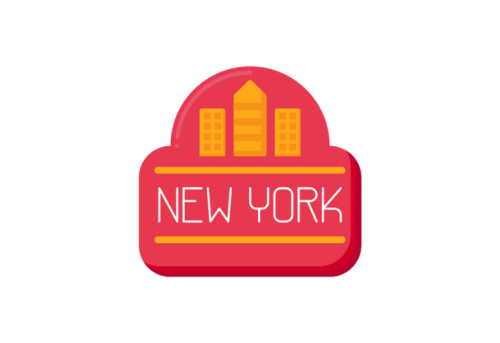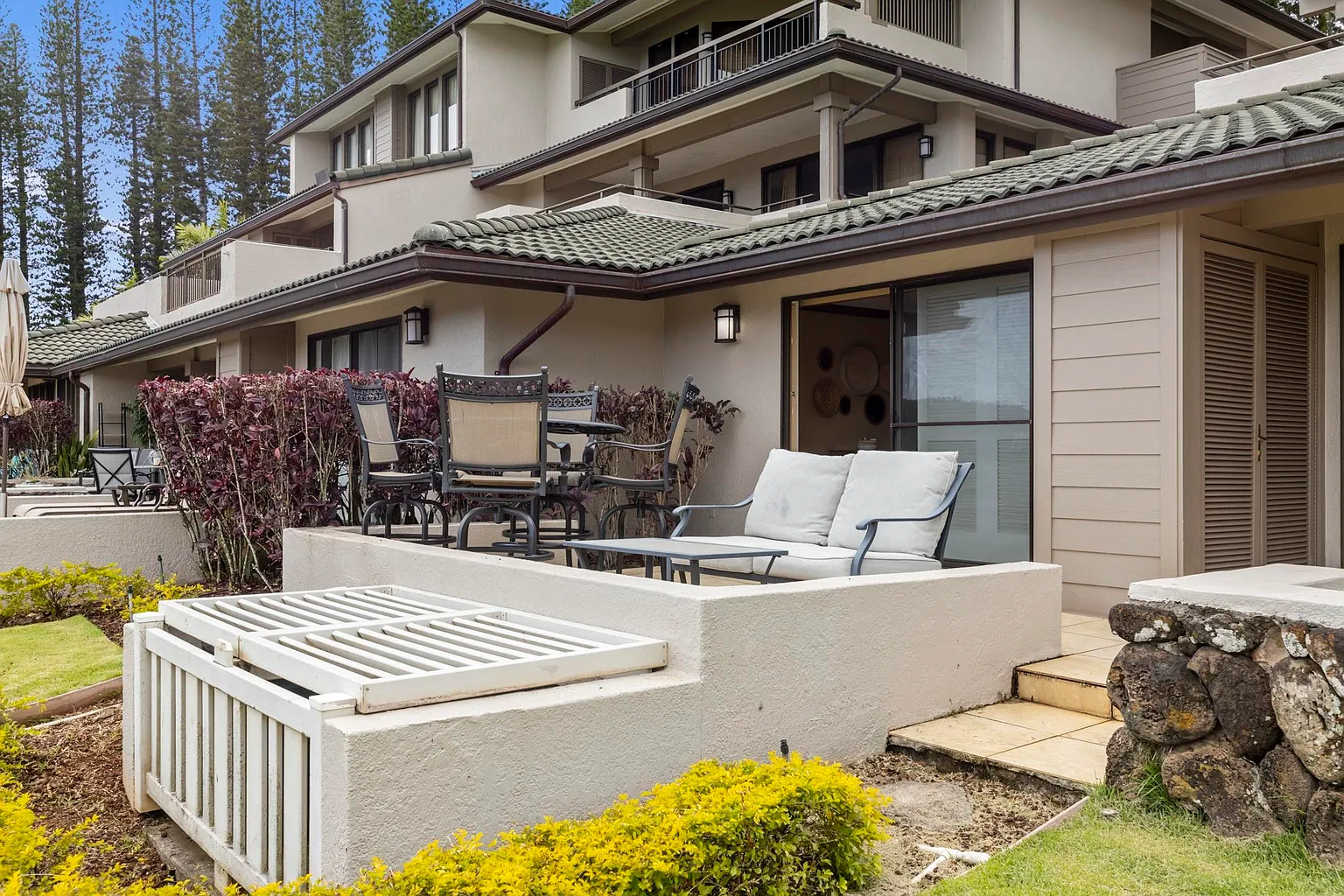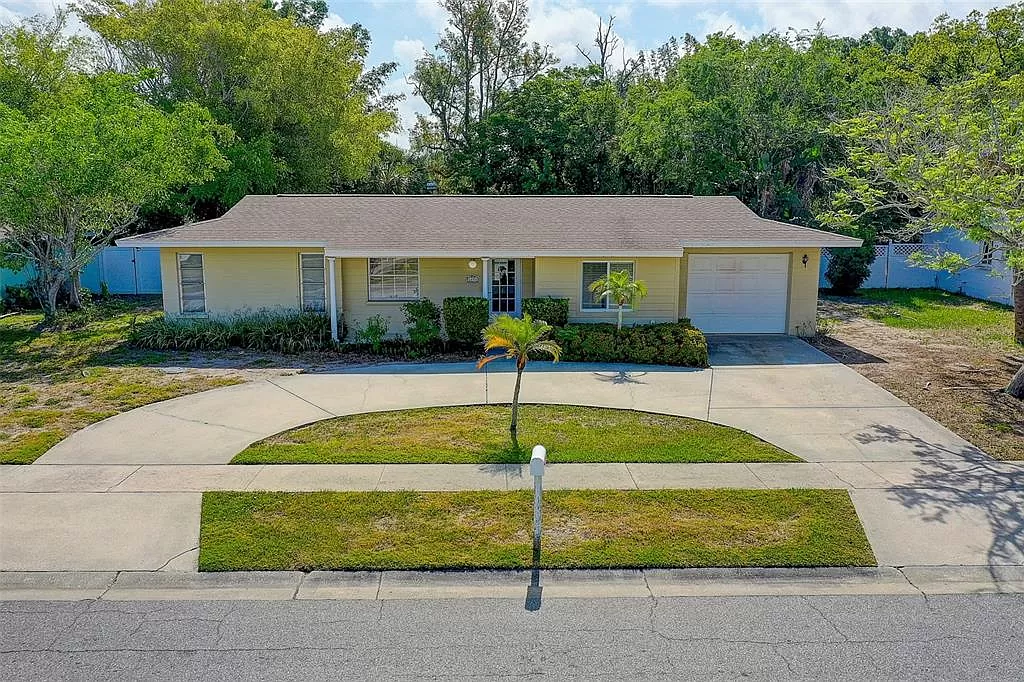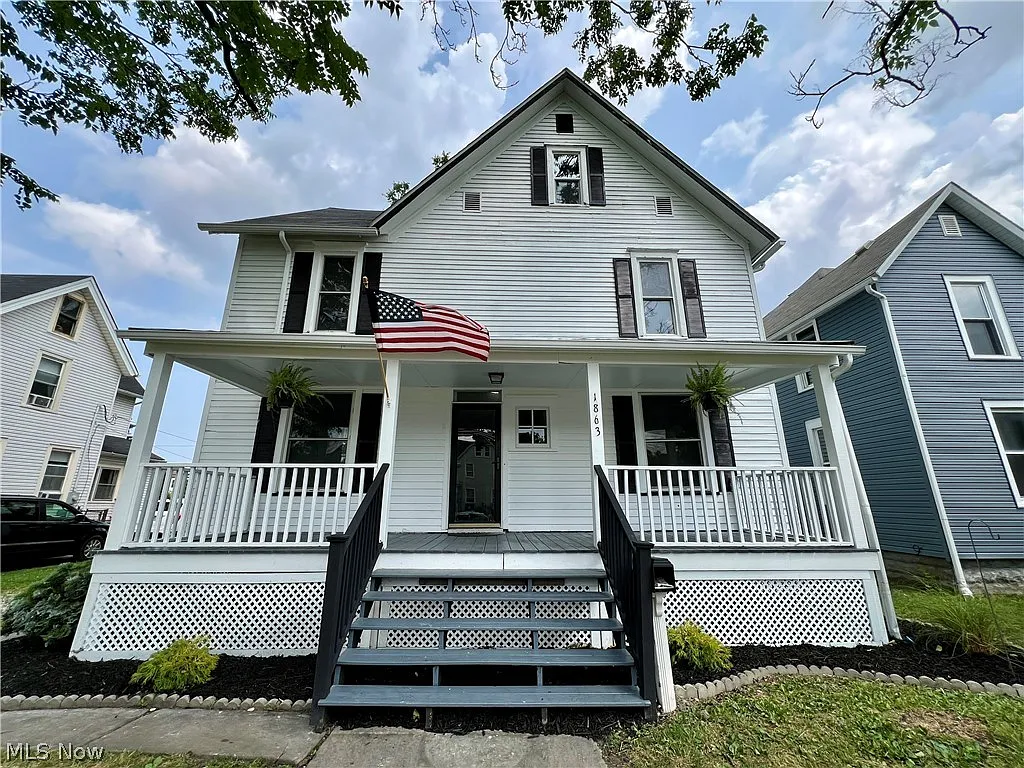YES, foreigners can buy property in New York. Compared to almost everywhere else, purchasing real estate in the US is simpler for foreigners. Land sales are prohibited in many nations, but in the United States, buyers are not even required to have a green card or a specific visa.
Foreigners can purchase real estate in New York City quite easily because they receive the same treatment as domestic buyers. In this article, we’ll discover how you can buy a property in New York as a foreigner and some things to keep in mind when you do so!
Table of Contents
Why Invest In New York City Properties?
If you’re considering purchasing a property in New York City, it’s likely because you’ve heard about the city’s booming real estate market. And you’re not wrong- NYC is currently one of the hottest markets in the US for real estate investors.
There are several reasons why investing in NYC real estate is a smart move.
- Growing Job Market: For a long time, the financial and security sectors have been stable. With the unemployment rate at its lowest in years. While any disruption could result in significant job losses, the job market is currently thriving as a result of large projects such as Essex Crossing Pacific Park and others, bringing more than 30,000 jobs to the city. Metropolitan suburbs and New York City have made the greatest contribution, increasing the number of opportunities by nearly 20% in the last decade. This means high rental demand for real estate investors.
- The Inventory Is Increasing: The number of properties on the market has increased month after month over the last three months. In April, there were 19,000 properties for sale on StreetEasy. That’s close to the pre-pandemic peak of 20,735 available houses in the spring of 2019 when the market was much slower than it is now. This is a good sign for buyers this spring and summer because many sellers are trying to take advantage of current market dynamics by listing while the market is hot.
- Strong Home Buyer Activity: Real estate is in high demand regardless of housing market changes. Homebuyers in New York are breaking all previous records, making the state a more stable investment market.
- Rent Prices: Vacancy rates in New York have been declining in recent months, while demand for rental housing in New York has increased. As a result, the number of new rental units in the city increased dramatically. Because of the increased supply, landlords were forced to be more price competitive and offer better concessions. Rent growth has slowed, which can be attributed in part to the rental unit boom. It is best for the New York real estate investor to keep a close eye on rental demand and supply.
- Popularization of Urban Suburbs: Millennials is flocking to metropolitan suburban areas, where new types of neighborhoods are emerging. Combining the best features of urban and suburban areas, they make for highly desirable real estate investment opportunities.
What Type of Property Can Foreign Buyers Get in New York?
In New York, foreigners can purchase any property, including single-family residences, condos, co-ops, and land. There are no restrictions on the type of property a foreigner can buy in New York. Real estate in Manhattan can be classified as Cooperatives, Condominiums, or Townhouses.
- A cooperative is a complex of apartments where each unit’s owner owns building shares. An owner of a cooperative has a proprietary lease with the cooperative building, which technically makes the owner the cooperative’s long-term tenant. Because a Coop requires board approval to buy or sell, there are restrictions on renting out, and a Coop board can reject a transaction without giving a reason. A Coop is not the preferred building type for foreign buyers. Local New Yorkers who purchase coops typically do so for their use.
- A condominium is the suggested building type for foreign purchasers. While a condominium is also an apartment complex, the real estate title to each apartment is owned by the individual apartment owner. In other words, the condo owner can buy, sell, rent out his unit whenever he wants, and renovate as he pleases without seeking board approval. A condominium appreciates more than a cooperative building because it has more flexibility.
- Townhouses are landed property that can also be purchased by foreign nationals. Even some townhouses have air rights, which allow for higher construction and increased value. When one owns a townhouse, there are no board regulations. The cost of entry is considerably higher, though.
Condos present the fewest challenges if you want to make a simple residential purchase. Both single people and families can live in these opulent apartments and enjoy a contemporary lifestyle. In the same way, a condo owner owns their unit outright; the buyer also has access to the condo’s communal areas. With domestic and foreign buyers, condo living has grown increasingly popular. In the past few years, many brand-new condo buildings have been constructed or converted from co-ops. Most New York property is still co-op, but new condo construction is booming and includes some of the most modern features.
Over one-quarter of all the real estate in New York is condos, which represents an ever-growing market.
What Are The Requirements For Purchasing a Property in New York?
As a foreigner, you are allowed to purchase property in New York. However, there are certain requirements that must be met in order to do so. These requirements include:
- Proof of citizenship or legal residency status in the United States
- A valid passport
- A Social Security Number
- Social security number or ITIN;
- Bank statements and, if relevant, financial documents from your foreign bank
- Evidence of reserves
- Check stubs
- Tax return
- You must have a good credit score. The higher your credit score, the lower your mortgage interest rate will be. If you have a low or No credit score, check our detailed step-by-step guide on Guide to Foreign National Mortgage Loans with No US Credit
- You’ll need to save up for a down payment. The amount required will vary depending on the type of loan you qualify for, but it is typically between 3-5% of the home’s purchase price. Third, you must be employed and have a consistent source of income. Lenders want to see that you can afford to make your monthly mortgage payments on time.
- If your down payment is less than 20% of the home’s purchase price, most lenders will require you to purchase private mortgage insurance (PMI). PMI protects the lender in the event of a loan default.
If you are able to meet all of these requirements, then you should have no problem purchasing property in New York. However, if you have any questions or concerns, it is always best to speak with a legal professional to ensure that everything is done correctly.
How Can You Buy A Property in NYC As A Foreigner?
The process of purchasing a property in New York as a foreigner is the same as it would be for any domestic buyer. You’ll need to engage the services of a real estate attorney and a mortgage broker to help you with the purchase.
The process of buying a property in New York City comprises the following steps:
Step 1 – Preparation
It will be helpful to get ready before you start your search for New York property so that you can act quickly and secure the home of your dreams when you find it. Before you begin your search, talk to a banker or mortgage broker if you need financing and get pre-approved for a loan. This will not only help you determine your budget, but it will also improve your buyer appeal and enable you to bargain for a lower price.
Resident foreign nationals should think about things like commute, community type, schools (if you have kids), amenities nearby, etc., when choosing where to buy a house.
Similarly, non-resident foreign investors should investigate the best states and cities to live in New York (and invest in real estate). Before searching for a home in New York City, you should decide on:
- you desired neighborhood
- the type of housing you wants
- the purchase price you can afford
- The amount of space in the apartment.
- The building’s amenities you want
- The building’s location and proximity to local amenities.
- The buyer should also consider their income level.
Note: It is a requirement in New York to have a lawyer who can review your contract and protect your interests during the transaction. It goes without saying how crucial it is to choose a lawyer you can trust and feel at ease with.
Step 2 – Find a Real Estate Agent
Finding a real estate agent or realtor with experience in international and foreign national transactions is the first step before purchasing a property. Finding a realtor who has dealt with foreign investors interested in buying property in New York or international-born US residents wanting to purchase a house in New York on an H1B, L1, or F1 visa is important since there are several hurdles and risks that purchasers may make if the agent lacks this expertise.
The ideal real estate agent would hold a professional designation like the CIPS (Certified International Property Specialist). HomeAbroad can help you find the best CIPS real estate agent in your desired purchase area with expertise in international real estate transactions in New York.

Find the best real estate agent with international expertise
Connect with a HomeAbroad real estate agent in your area.
Step 3 – Working with the Real Estate Agent in the USA
Now that you have the resources to locate a real estate agent with experience in cross-border transactions let’s examine how using a real estate agent functions in places like New York.
Buyers who are from abroad should be ready to sign a buyer representation contract with the real estate agent. Therefore, before signing, you must read and comprehend this document.
The fee or commission for both the buyer’s and the seller’s real estate agent is paid by the seller of the property in the US. As a result, there are no commissions or other costs associated with using a real estate agent of your choosing (including a CIPS realtor)
Step 4 – Start Your Home Search Process.
Now that you know all of the basics of purchasing property as a foreigner in New York, you are ready to get started with your home search!
Your real estate agent will be able to help you find properties that match your budget and preferences. Additionally, they can guide what to expect during the negotiation and purchase process.
Your real estate agent can set up virtual tours if you aren’t yet ready to travel to the US to show you your options by displaying images and videos of housing that fits your criteria online.
Your realtor will also be able to respond to your inquiries about local schools, transportation, leisure pursuits, etc. Additionally, your realtor will let you know which items will remain with the homes you are viewing. The kitchen cabinets and appliances, for instance, typically remain with the house in the US. Additionally, you typically own the land along with the house in the United States.
Step 5 – Make An Offer On The Property You Like And Finalise
After viewing the properties and selecting the one you like, you should offer to buy it. Such an offer is not contractually obligated, and you can compare multiple offers to get the best deal. Your real estate agent will advise what price offers you should make to the seller with this information. You should rely on your specialized agent’s negotiation skills since most property list prices are negotiable.
Following your offer, the seller has three choices. They have the option of accepting, rejecting, or making a counteroffer with a different price.
After the seller has accepted an offer, the contract and building bylaws (or an offering plan for new development) is sent to the buyer’s lawyer for review.
Step 6 – Conduct a Home Inspection
This is the most important and final step before you buy your new property. You can purchase a home without conducting an inspection, but it is strongly advised that you do so to ensure that all of your bases are covered. The inspector will make sure the house is structurally sound and that all systems are functioning while looking for any construction flaws or damage.
Your knowledgeable real estate agent can guide you through the process and provide you with a list of home inspectors or arrange for one on your behalf.
Step 7: Have The Seller Sign The Purchase Agreement.
You and the seller will enter into a purchase agreement after the home inspection. You are legally bound to the transaction by the contract of sale. The price and any other terms your realtor negotiated for you will be included in the contract of sale. You must deliver your earnest money deposit, which will be between 5 and 10% of the sales price, at the time of the contract. Until the sale of the property is completed, this money is held in an escrow (trust) account.
A provision stating that you may cancel the purchase if your immigration status changes or a financing problem arises will also be included in the contract of sale.
Step 8: Coop or Condo board approval (if applicable)
The New York real estate purchase process’ most unpleasant step is probably getting board approval. Even if you purchase an apartment in the friendliest condo complex, you cannot avoid it. If you are purchasing a coop or condo, the board of directors for that building will need to approve your application. They will run a background check and review your financials to ensure you can afford to purchase the apartment and maintain it over time. Some boards may interview you as well.
The entire process usually takes between 2 and 8 weeks. You’ll need to compile a comprehensive package with a tonne of financial and personal details, such as tax returns, bank statements, personal and professional references, etc.
The rigorous process of receiving coop board approval typically involves a personal interview. The same process and amount of paperwork are needed for condo board approvals. It is typically just a formality, though.
Step 9: Finish the Title Report
You have more time after the contract is signed to arrange to finance and do more investigation into the property’s status legally and physically. Now is the time to complete the appraisal and survey that is required for the mortgage. Your attorney will examine the paperwork, conduct a title search, and look for liens and legal infractions.
When you apply for a mortgage, your bank will review all of the necessary documentation regarding your income, assets, and building financials. Once everything is in order, your bank will typically wire the entire loan amount to the escrow account held by your attorney.
An American title report will list the property’s previous owners and any active liens against it. The Title Report is important because it safeguards the buyer. Any liens against the property would need to be satisfied by the seller before the purchaser takes ownership. No liens will be present when you take ownership.
Step 10: Obtain Home Financing for Foreign Nationals Through a US Mortgage (if applicable)
Contrary to popular belief, foreign nationals can obtain US mortgage financing without US credit history. Some US lenders provide competitively priced mortgages for recent immigrants and non-resident buyers who lack US credit histories. These lenders also focus on mortgages for foreign nationals with non-immigrant visas like H1-B, L-1, etc.

Pre-qualify for a US mortgage as an international buyer.
No US credit history needed.
Foreign nationals now have affordable home financing options, so they don’t need to wait two to three years to establish credit in the US before purchasing a home. Similar to resident buyers, non-resident buyers don’t have to pay the full purchase price in cash and can use that money for assets with higher returns.
You can access our definitive guide on How to Obtain a U.S. Mortgage for Foreign Nationals with No or thin US Credit History for details on the US mortgage process.
If you are paying cash, you have nothing more to do until the Title Report is completed.
Step 11 – Take ownership of your new house in New York!
There will be numerous documents to sign on the day you take ownership. The seller will first execute a deed giving you ownership. A crucial document, the Deed establishes ownership. Your name appearing on the Deed and the seller’s signature serve as evidence that the property has been transferred to you. The document will then be notarized by a Title Closer and filed with the local government office. This is done to keep you safe.
The seller will give you the keys so you can move in whenever you want on the day you take ownership or the closing.
Benefits And Drawbacks of Owning Property in New York
As a foreigner, you may want to purchase property in New York for investment purposes or as a place to live. There are many benefits and drawbacks of owning property in New York that you should consider before making a decision.
Benefits:
Ownership Pride
You’ll have a home you can call your own. No more asking the landlord’s permission before changing the color of the walls from off-white. Whichever New York neighbourhood you choose to buy in, you’ll be the owner and a part of the community.
Savings on costs
Your monthly mortgage payment may, in some circumstances, be less than what you would pay in rent, especially given the low-interest rates of today. Additionally, since most people can deduct their mortgage interest and property taxes when they file, owning a home can frequently lower the amount of federal income taxes you pay.
Protects Against Inflation
A fixed-rate mortgage guarantees that the interest rate will not change over the course of the loan. Even if it’s a 30-year loan, you will know the monthly payment amount! To determine whether this type of mortgage is appropriate for you, Maple Tree Funding can go over the various loan scenarios with you.
Housing is in high demand.
There is a severe housing shortage in New York City, and the high demand for housing is another benefit of investing in real estate there.
As a result, there will be a lot of demand for your rental properties, allowing you to set extremely high rents and eventually earn a respectable return on your investment.
Future price increases in real estate are possible.
Although New York real estate prices are already quite high, they may even rise further in the future due to the enormous demand for homes in this renowned city from investors and residents around the globe.
Drawbacks:
Ownership Responsibilities
A plumber is the only person to call when a faucet leaks, just as there is no landlord to ask permission to paint the walls a vibrant shade of purple. You can assess how detrimental this is by knowing your own level of “DIY” comfort and looking into the typical costs of routine maintenance. You’re responsible for upkeep and repairs.
This can be expensive, especially if something major needs to be repaired or replaced.
Commitment
Homeownership can make it more difficult to pick up and leave if you dislike a place or are going through a transition in your life. While ‘breaking a lease’ typically requires a 30-day notice, selling a home may take longer. Consider carefully whether this is the right time to purchase a home if you can’t commit to residing in one location for a while.
If you need to relocate, you can always rent it out to generate additional income, which will help offset the costs of ownership.
Deposit and closing fees
Most home loans require some sort of down payment, so buying a home typically requires some cash in the bank. Thoughtfully remember that some loans, like FHA mortgages, have low down payments! Actually, there is absolutely no down payment needed for USDA mortgages. Here’s where Maple Tree Funding can be of assistance. We can assist you in finding the ideal mortgage by working with a wide range of lenders and loan types.
Overall, owning property in New York has its pros and cons. You will need to weigh these factors carefully before making a decision. New York is a state with high rental yields, which makes it an excellent investment location. If you decide to purchase property in New York, work with experienced professionals to help you through the process.
Things To Keep In Mind Before Buying Property in New York!
You should know a few things before you buy a property in New York as a foreigner.
Costs Associated
The costs are the same for foreigners and local Americans. Foreign buyers are not subject to any additional taxes or stamp duties. If a foreigner decides to set up a more complicated entity structure to hold the property, there will only be a slight increase in cost. However, since locals can do the same, there aren’t any additional costs for tourists.
If you’re planning to buy in cash, expect to pay about 2% of the price as transaction costs. 1% of the purchase price goes to the mansion tax, 0.5% to title insurance, and the remaining 0.5% to other expenses. (attorney fees, recording fees, board package fees etc.).
If you’re planning to acquire to mortgage, the costs involved are roughly 6% of the mortgage loan. In the example above, it was a function of the property’s price; however, in this example, it is a function of the loan. The loan amount can affect how much you pay each month. The mortgage tax is 2% of the loan amount. This comes to about 6% of the loan if we transform everything into a function of the loan.
The transaction costs at the sale represent about 8% of the purchase price. Both foreigners and American citizens must adhere to these. 2% goes to transfer taxes, attorney fees, and other expenses, while 6% goes to broker fees shared by both parties.
Understand Your Tax Liabilities
Good news for foreigners looking to buy real estate in New York: unlike in Hong Kong or London, there is no tax on non-US property investments in New York. However, they must consider certain taxes if they want to transfer title. The Foreign Investment in Real Property Tax Act of 1980 (also known as FIRPTA) allows the government to withhold 15% of the proceeds from foreign-owned property sales, exchanges, gifts, transfers, and liquidations.
In contrast to other nations where you might be subject to additional taxes for purchasing property as a non-resident foreign buyer, the US government wants to ensure that this sentiment is maintained by making sure there are no additional taxes for non-resident investors in real estate.
If you don’t have a Social Security Number (SSN), you will typically need to obtain an Individual Taxpayer Identification Number (ITIN) to buy property in New York. You can also get help with this from your real estate agent, who has experience with international transactions.
Buyers who are resident foreign nationals and intend to use the home as their primary residence are only responsible for the property tax. If you are a non-resident buyer looking to buy an investment property in New York to generate income, you will only be required to pay taxes on the net income generated by the property and not on any value growth.
Non-resident foreign investors must pay their property taxes on real estate in New York just like any other US citizen. Foreign buyers will also be subject to additional tax obligations if they make money renting out real estate or if they sell US property for a profit.
Furthermore, they are subject to a higher estate tax: while US citizens are exempt for assets worth less than $5.6 million ($11.2 million for married couples), foreigners are not exempt for assets worth more than $60,000. Other tax liabilities may be:
- Tax Rate: Non-US citizens must pay a 30% withholding tax on income from US real estate.
- Tax Treaties: If your country and the United States have a tax treaty, you may be eligible for a lower withholding tax rate. Please see IRS Publication 515 for more information.
- Capital Gains Tax: If you are a non-US citizen and sell real estate in the US, you will have to pay capital gains taxes on the sale. For most taxpayers, the capital gains tax rate is 15%.
- Withholding Tax: When you sell real estate in the United States, the buyer must withhold 10% of the sales price and send it to the IRS. This is known as withholding tax. The withholding tax can be reduced or eliminated if you make an election under IRC 897(I).
No Additional Stamp Duty for Foreigners.
Unlike in cities such as Vancouver and Singapore, foreign buyers have no additional stamp duty. As a result, New York is a better value as a foreign investment destination for diversification.
The all-in transaction cost to buy in Manhattan is approximately 2% of the purchase price (if an all-cash transaction) and 8% of the sale price at the time of sale. This transaction cost estimate applies equally to both locals and foreigners.
New York is on the lower end of the total transaction costs compared to other global gateway cities. For example, in Hong Kong, the all-in cost to purchase a property is 5%, while the all-in cost to sell is 10%. In London, the all-in cost to purchase a property is 7%, and the all-in cost to sell is 14%.
Conclusion
New York is an excellent city for foreigners to invest in real estate. The process is relatively simple, and the taxes are relatively low. New York is a great option if you want to diversify your portfolio and invest in real estate outside of your home country. The all-in transaction cost is lower than in other global gateway cities, making it an excellent value for your investment.
New York offers a lavish lifestyle and a high quality of life as a city to live in. The city is home to some of the world’s best restaurants, shopping, and entertainment. New York is a perfect choice if you are looking for a place to live that offers all of these things.
Frequently Asked Questions
Q1. What is the distinction between cooperative and condominium buildings?
Cooperative Housing Corporations own an entire building in co-op buildings. When you purchase a co-op, you purchase shares in a corporation in proportion to the size of your apartment and become a partner in the corporation with your neighbors. You own a ‘proprietary lease’ rather than owning real estate outright. Condominium buildings are regular real estate in which an owner owns a portion of the common area.
Q2. How do I locate a property to purchase in New York?
The best way to navigate the New York real estate market is to hire a professional real estate broker who will represent YOUR interests. Although some information is available from public sources, such as printed media and the internet, brokers have access to a wealth of information, including the most recent updates, as well as a wealth of experience and knowledge to share.
HomeAbroad Inc. is a real estate firm representing foreign buyers in purchasing residential property in New York City. We can help you locate and purchase the perfect property for your needs.
Q3. What is the Capital Gains Tax on Sales for foreign property owners in NYC?
Foreign property owners in NYC will need to pay both State and Federal Capital Gains Tax on their net capital gains. Net capital gains are calculated by taking your original purchase price and adding closing costs for both purchases and sales, as well as the cost of any capital improvements such as renovations and repairs, and subtracting this cost from your sale price. The federal capital gains tax is 20% of your net capital gains. Furthermore, New York State levies a non-resident gains tax of 8.82% on net capital gains.
Q4. Should I buy a condo or a co-op in New York City?
Because of the strict House Rules regarding subletting and primary residency imposed on co-op apartment owners, you may be limited to investing in condominiums as a foreigner. Furthermore, you may not want to invest in free-standing property such as multi-family or townhouses because of the required maintenance. Unless you intend to invest on a large scale with teams of contractors, superintendents, and property managers on the ground, buying a condo where you are only responsible for the interior of your unit may be easier.




















